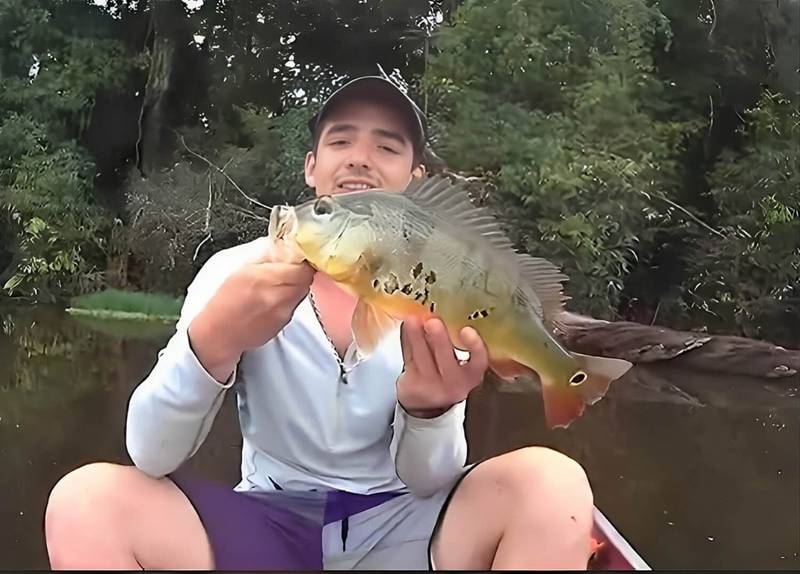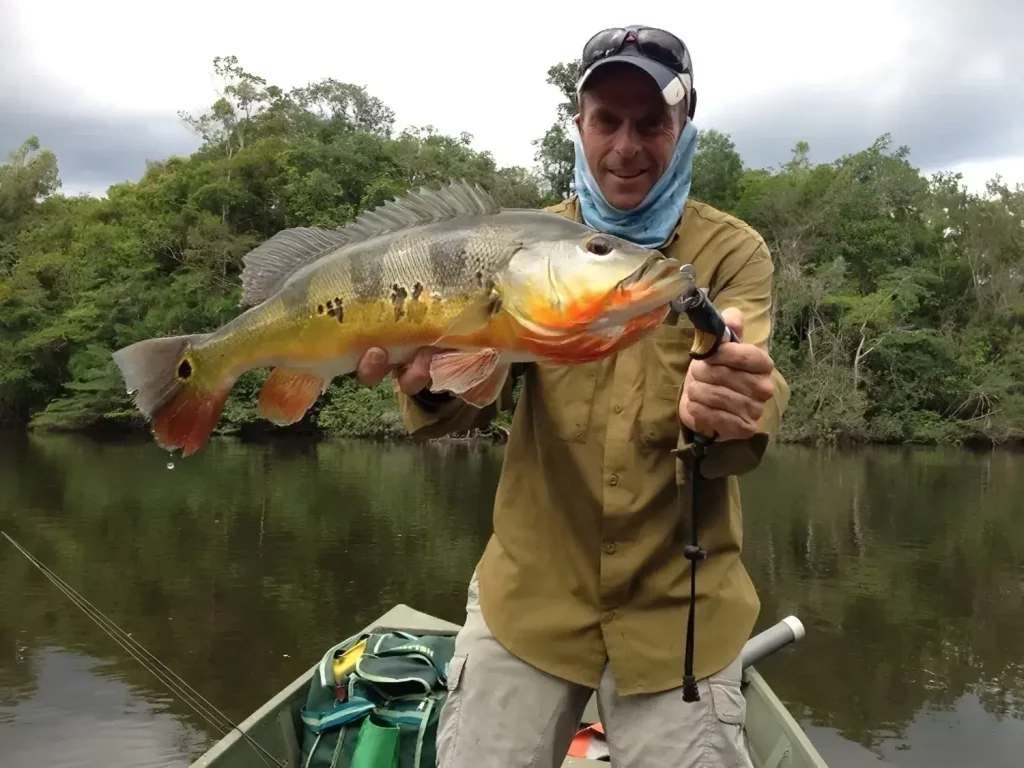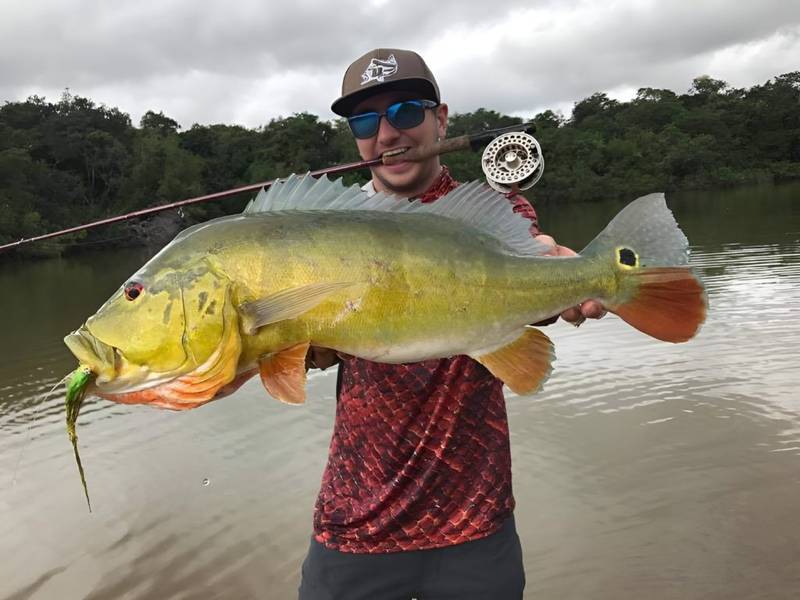Sport fishing is a recreational activity enjoyed by many, but it is also the subject of debate and concern when it comes to animal welfare. Although promoted as a responsible practice, sport fishing can cause harm to the fish caught, raising ethical and environmental questions.
Sport fishing: a recreational activity with negative consequences

- One of the main reasons why sport fishing can harm fish is the struggle that takes place during the catching process. When a fish is hooked, it engages in an intense struggle to free itself from the hook, which causes stress and fatigue. This struggle can cause physical damage to the fish, such as injuries to the mouth, jaws and gills, which can make it difficult for the fish to feed and breathe properly after release.
- Another factor of concern is the removal of the fish from the water. Removing them from the aquatic environment temporarily exposes them to air, which can cause thermal shock, especially in hot or cold conditions. This can negatively affect the survivability of the fish once they are returned to the water.
Despite the common practice of “catch and release,” studies suggest that some captured fish may not survive even after release. Prolonged stress, injury and improper handling during fishing can lead to health complications that can ultimately be fatal to the fish.
The problem of animal cruelty in sport fishing is of increasing concern to animal welfare advocates and environmentalists. The pressure to find a balance between anglers’ pleasure and the protection of animals and ecosystems is growing.
Conscious Practices for Conserving Aquatic Resources

- To address these concerns, it is important for recreational anglers to adopt more conscious and careful practices when fishing. This includes using barbless hooks, using proper equipment to minimize damage to fish, and returning fish to the water quickly, reducing the time they spend stressed out of their environment.
In addition, governments and conservation agencies should promote awareness of responsible sport fishing by providing guidance to anglers and clear rules to protect fish stocks and aquatic ecosystems.
In conclusion, although sport fishing is a popular recreational activity, providing challenges and connection with nature. However, it is crucial to recognize animal welfare concerns. Adopting more conscientious and sustainable practices when fishing is essential to minimize negative impacts on fish. These practices will also ensure the preservation of aquatic ecosystems for future generations.
What steps have governments and conservation organizations taken to raise awareness about responsible sport fishing?

Raising awareness of responsible recreational fishing: the role of governments and conservation agencies
Raising awareness about responsible sport fishing plays a key role in promoting ethical and sustainable recreational fishing practices. Governments and conservation agencies should inform anglers and communities about the importance of protecting aquatic ecosystems. This involves promoting responsible fishing that respects the welfare of fish.
Some ways in which governments and conservation organizations can raise awareness about responsible recreational fishing:
Environmental education campaigns:
- Environmental education initiatives are key to raising awareness about fish conservation and preservation of aquatic ecosystems. These campaigns can include lectures, workshops, and informational materials. Interactive activities designed for different audiences, from amateur anglers to the general population, can also be developed.
Creation of informative material:
- The creation of educational material, such as brochures, leaflets, and guides, that provide information on good sport fishing practices, local regulations, responsible fishing techniques, and the positive effects of ecosystem conservation. This material can be distributed to fishing centers, government agencies, schools and other relevant locations.
Education and training programs:
- Offer education and training programs for recreational anglers, environmental inspectors and fishing guides. These trainings can address proper fish handling techniques during catch and release. Focus on the use of appropriate equipment and understanding of current regulations to promote more conscientious fishing.
Advertising on social media and digital platforms:
- Leverage the popularity of social media and digital platforms to share information about responsible sportfishing. Posting tips, educational videos and success stories related to ethical fishing can reach a wide and diverse audience.
Partnerships with fishing associations and organizations:
- Collaborate with sportfishing associations and non-governmental organizations (NGOs) to develop joint awareness-raising initiatives. These partnerships can strengthen environmental and awareness efforts. These partnerships can strengthen awareness efforts and reach a wider audience.
Sustainable events and competitions:
- Promote responsible sport fishing events that encourage “catch and release” and other ethical practices. Competitions that reward environmental awareness can motivate anglers. In addition, recognition of sustainable techniques in these contests encourages the adoption of more responsible practices.
Participation in fishing fairs and events:
- Participate in sport fishing fairs and events to interact with anglers. Provide information on responsible fishing, local regulations and conservation programs.
Monitoring and research:
- It is essential to invest in monitoring and research programs. These allow you to assess the status of fish stocks and the impact of sport fishing on ecosystems. Scientific data provide valuable information to support awareness campaigns. They also allow regulations to be adjusted according to the specific needs of each region.
In conclusion, raising awareness of responsible sport fishing is crucial for conserving fish stocks and aquatic ecosystems. Governments and conservation agencies have a crucial role to play in promoting ethical practices. This is achieved through educational campaigns, training and capacity building programs, and collaborations with fishing associations and NGOs. Adopting these measures encourages fishermen to practice conscious and sustainable sport fishing. This ensures the health of aquatic ecosystems.





